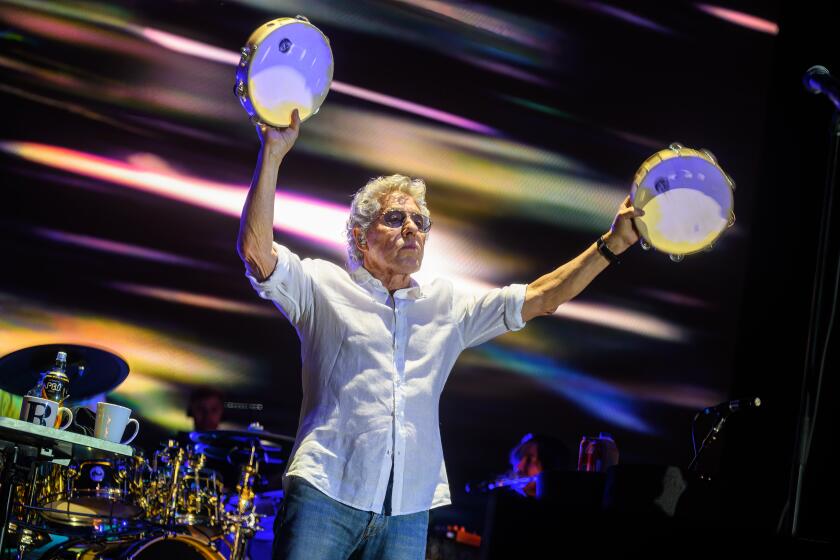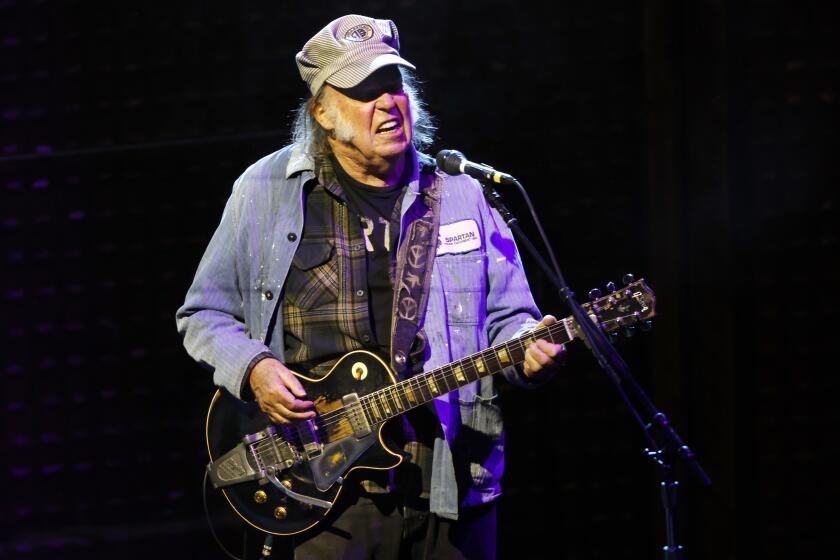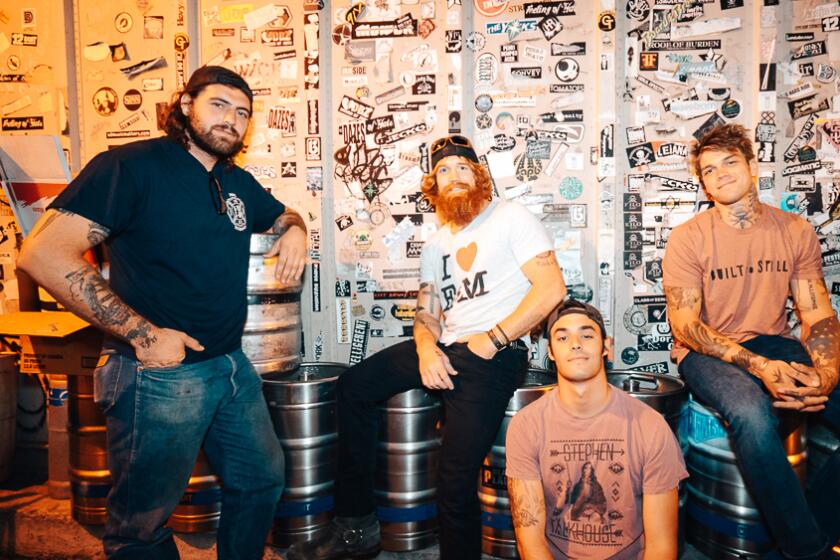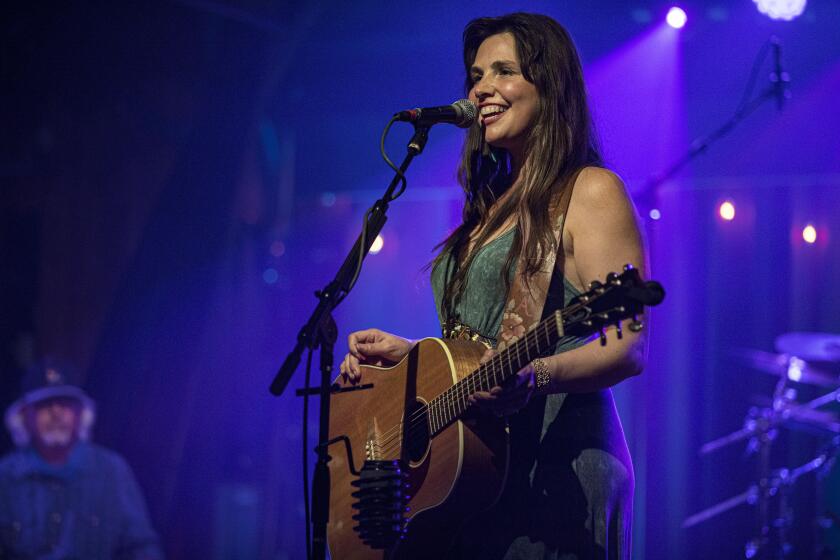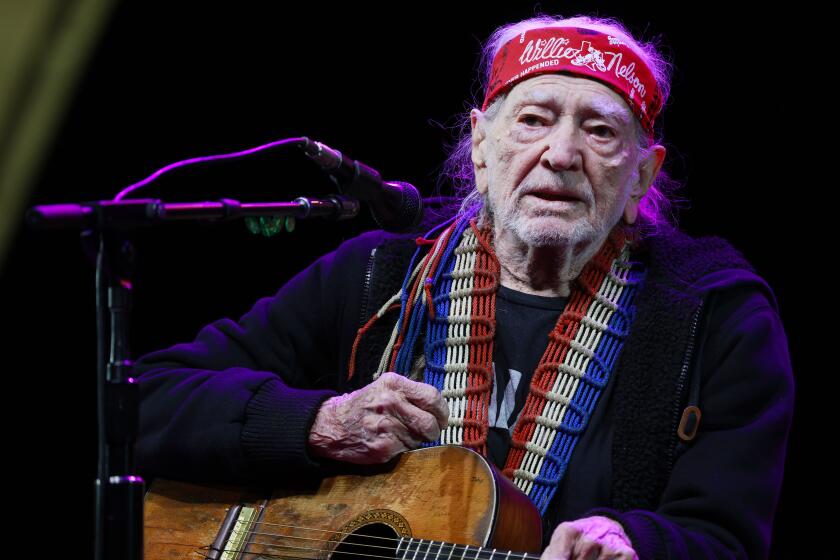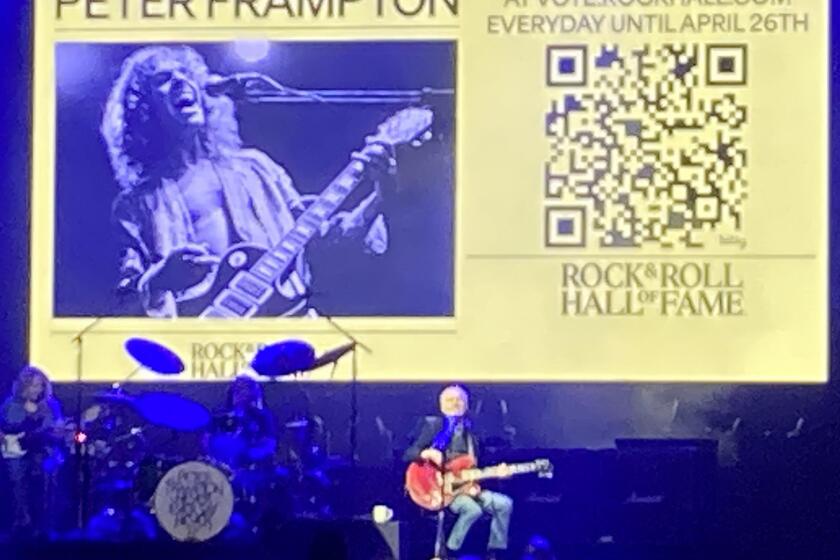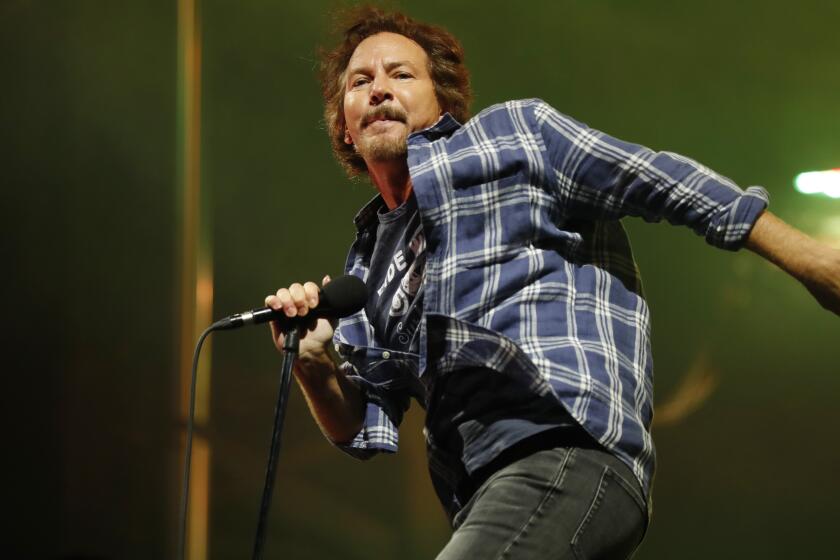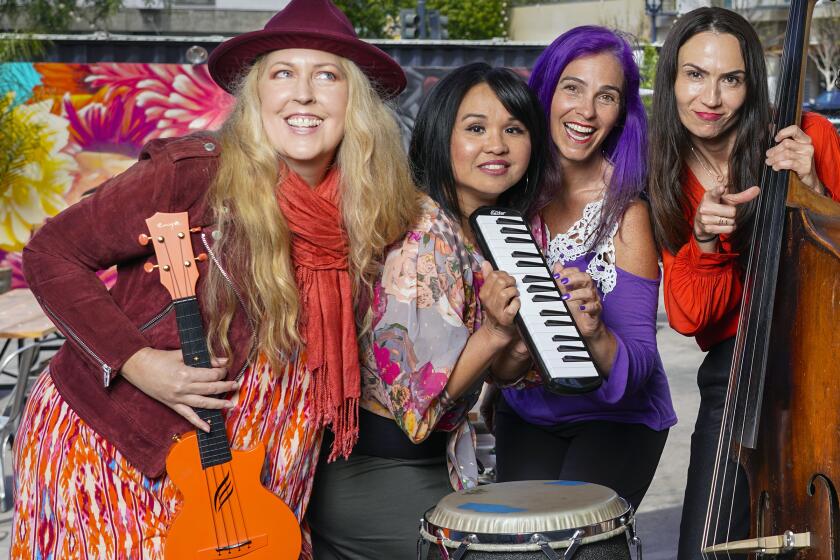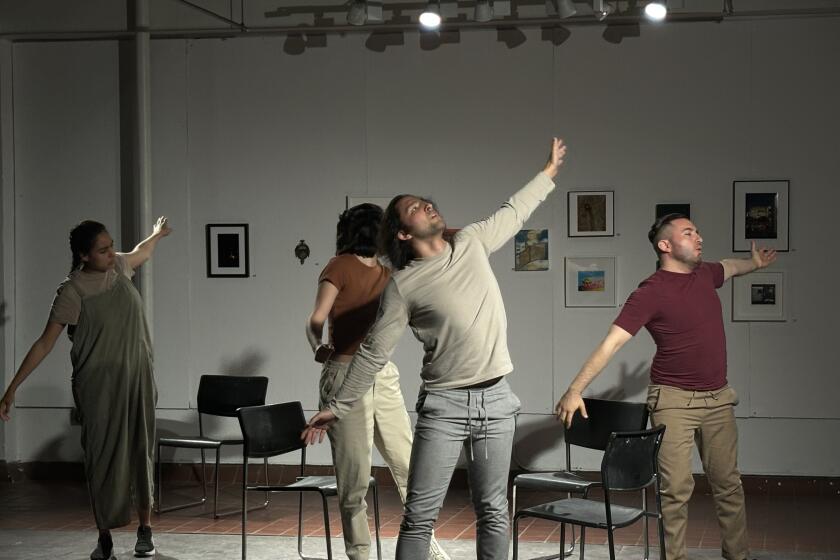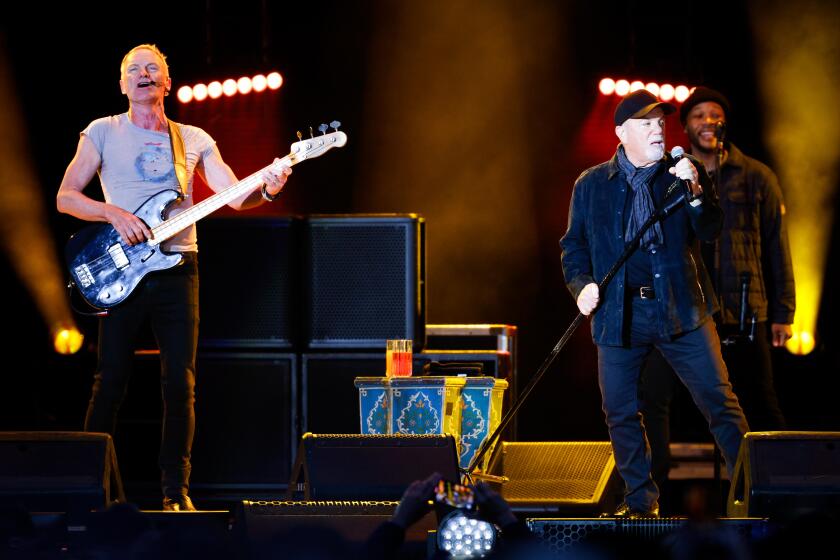Robert Plant and Alison Krauss on music, intuition and mullet hair styles: ‘It was a career move!’ he recalls
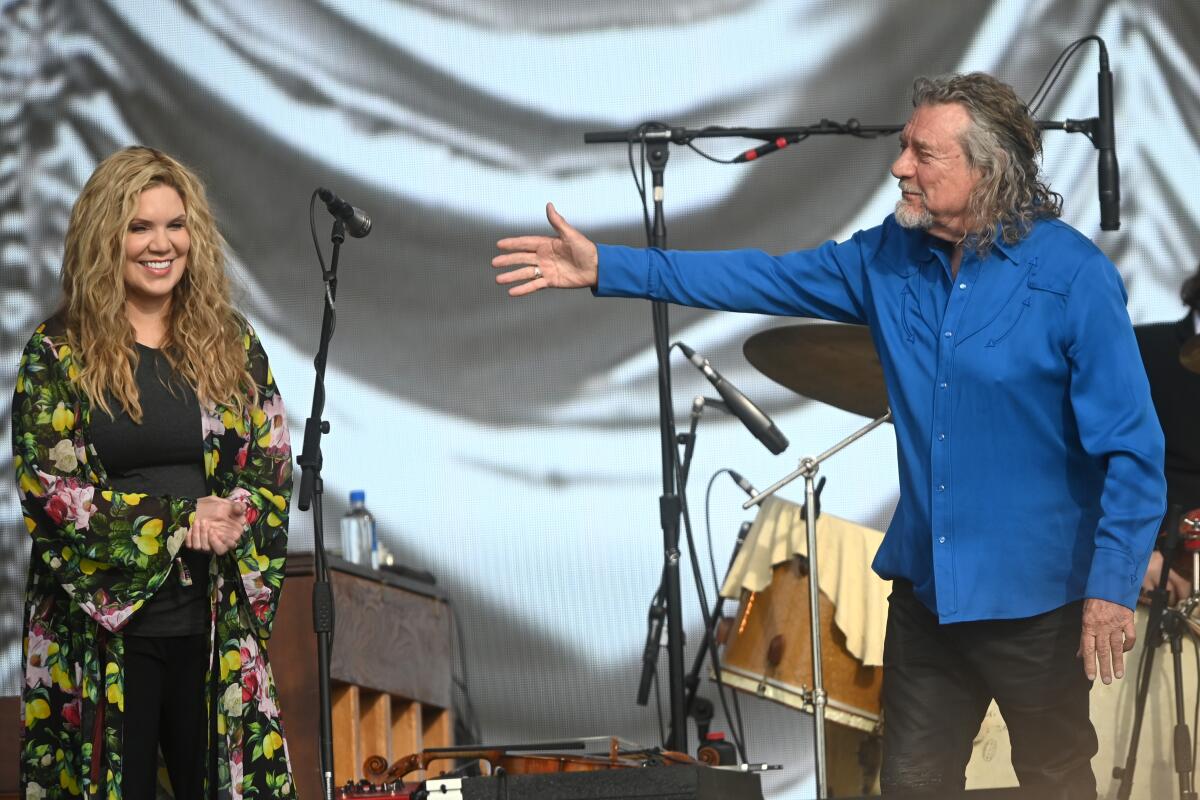
Bluegrass-music queen Krauss, a 27-time Grammy Award-winner, and Plant, the co-founder of Led Zeppelin and veteran solo artist, kick off the third leg of their 2022 concert tour Monday in San Diego. It concludes Sept. 12 in New York City
Former Led Zeppelin singer Robert Plant has multiple reasons to be impressed with fellow singer Alison Krauss, his periodic musical partner over the past 15 years.
She has a luminous voice, is a superb violinist and a skilled band leader whose national solo debut album came out when she was in 10th grade. But that’s not what impresses Plant most about Krauss, who was just 19 when she won the first of her 27 Grammy Awards.
Rather, it’s her ability to shine when collaborating with such diverse artists as Vince Gill, Bonnie Raitt, Phish, Andrea Bocelli, James Taylor, Michel Feinstein, Dolly Parton, Yo-Yo Ma, Tom Jones, The Chieftains, Bad Company or Def Leppard, whose new album features Krauss on two songs. That’s just a fraction of the list of her past musical partners.
“What is most commendable of all about you are your duets with so many people,” Plant told Krauss during a joint interview with the Union-Tribune. “I think you’ve done more duets than I’ve had girlfriends!”
Krauss laughed, then cracked up when her interviewer asked if she and Plant needed a calculator to tally up the numbers.
“A calculator? Good one!” Krauss said, laughing again.
In fact, the most extensive duets Krauss has done in her career have been with Plant, first on their 2007 album, “Raising Sand,” which won five Grammy Awards.
‘Raising Sand’ wins 5 awards including Album of the Year
The two singers did not record again until they made the equally absorbing album, “Raise the Roof.” It was completed in early 2020, but not released until last year because of the pandemic.
Both albums showcase earthy blues, country, folk, R&B and other styles with deep feeling and no extraneous musical gestures. Plant and Krauss put fresh and decidedly unexpected new spins on favorites by such varied artists as Doc Watson, Allen Toussaint, Little Milton, the Everly Brothers, Lucinda Williams, Merle Haggard, Geeshie Wiley and others.
The results are deeply evocative and often haunting. Krauss’ rich, pristine voice and pinpoint delivery contrast and complement Plant’s freewheeling, never-do-a-song-the-same-way-twice approach. It’s an unlikely combination that works better than either could have imagined.
Their give-and-take rapport in conversation is punctuated by candor, thoughtful reflection and good-natured ribbing.
When Plant made a joking reference to the mullet hairstyle he sported for part of the 1980s, Krauss was quick to respond.
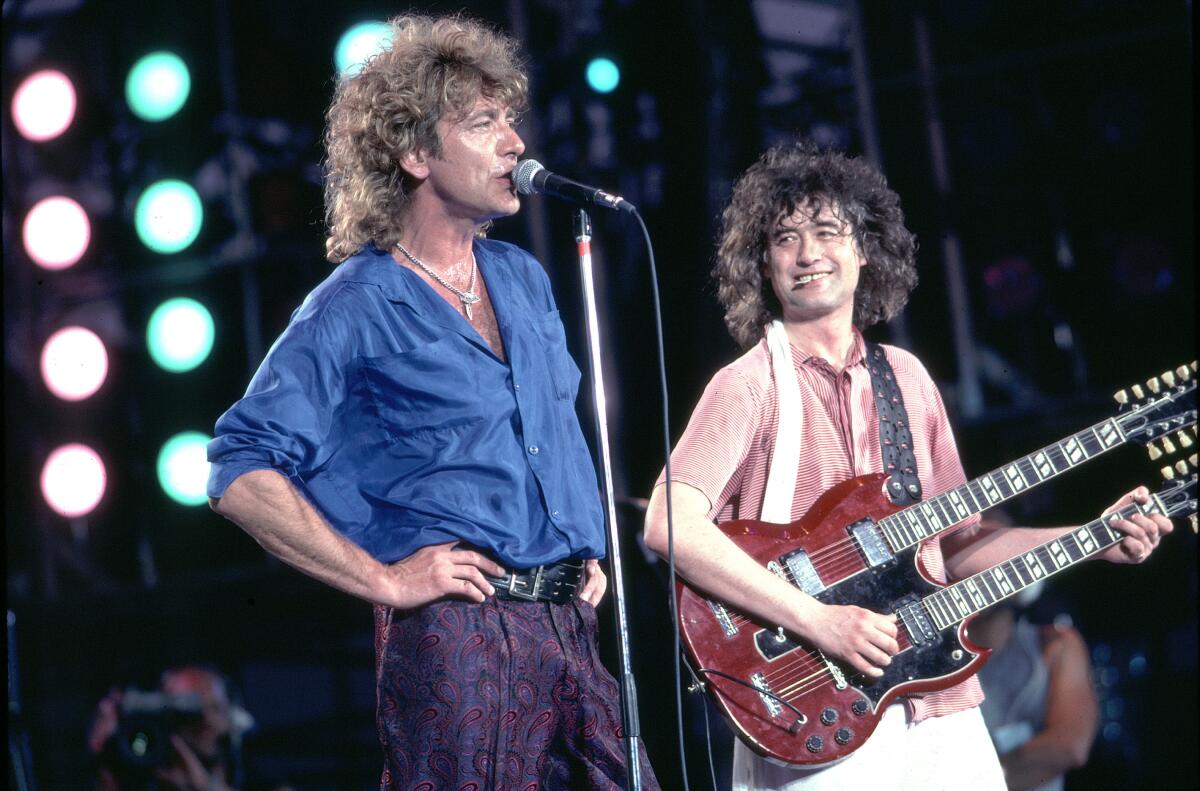
“I didn’t mind your mullet,” she said. “Yours was way less offensive than other people’s. Your mullet was okay.”
Plant chortled.
“It was a ‘career move’,” he joked. “Oh, man! What happened?”
“Your mullet,” Krauss shot back, “is what inspired me!”
Plant, 73, and Krauss, 51, spoke together by phone Thursday morning. She was at her home in Tennessee, he was at his in a rural part of England bordering Wales. Here are excerpts from the interview. They have been edited for length and clarity.
Q: When I interviewed the two of you in 2008, Robert said: “Alison and I are telepathically looped when we work on vocal intensity. That was something I didn’t know we could do, or that it even existed.” How has your musical rapport evolved since then? What is different and what remains the same?
Plant: Goodness me, that’s a nice, lightweight question for 6 a.m. in California!
Krauss: (laughs)
Plant: Well, I just follow her instructions.
Krauss: (laughing again) Oh, stop!
Plant: And she is charming and lets me have quite bit of rope. Then, she corrects me and does what is best.
Krauss: That’s an interesting take on the telepathic process!
Plant: We’re very intuitive... My phrasing is sometimes questionable, so it’s like a workshop we have and it’s really interesting. It’s developed nicely, especially recently when we played through Europe earlier this summer, from Scandinavia to Poland. I think we came of age as an entity, you and I, Alison, and also the band.
Robert Plant, meet Robert Plant!
Krauss: The luxury of us getting together again is that, when you sing with someone the first time, there’s so much unpredictability. And Robert is the most unpredictable person you’ll ever meet. But to get to do this again and see where these things line up now — it’s been a very different (experience) singing together this time around and revisiting something that is so much fun and now has a new life.
Plant: I think you’re right. We’re comfortable together and I think we’ve become pretty strong friends, without imposing on each other. We’re professionals, but — at the same time — we’re very comfortable and at ease with each other, socially and musically. So, we’ve grown up and also grown more relaxed. We support each other and that’s a great thing to do.
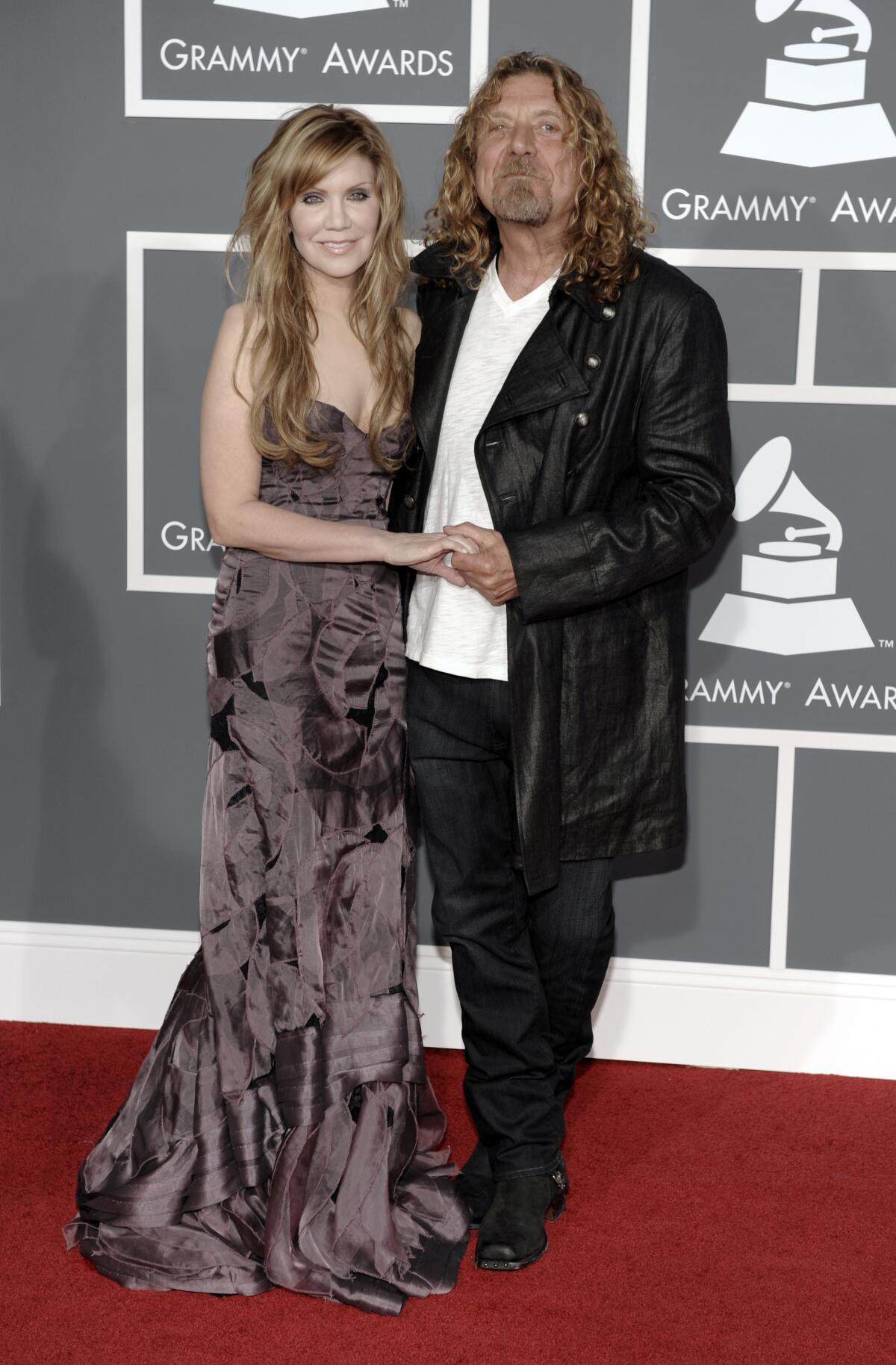
Q: We are, sadly still in the midst of a global pandemic. Not that either of you ever took music for granted, but does it mean something more or different you than it did before the pandemic?
Krauss: Oh, god, it does for me, for sure. How about you, Robert?
Plant: Well, I didn’t realize what a sad personality I am without being able to extend the abstractions of my unpredictability. So, yeah, it was such wake-up call to find everything was gone. You just take it for granted that this (music) is not a career, but a life. And you’d usually think it will be your call as to exactly how it will pan out once you get going on something. We’d been apart for a long time (since “Raising Sand”), doing our individual things, for no other reason than that both of us are hard workers...
When the pandemic struck, we were finishing this most recent batch of songs with a view to be able to (release them and) go on tour (in 2020). I am fortunate because I live in an incredibly rural place, so I was not restricted. But I was definitely restricted within my spirit, because this (music) is what I do. Singing to the chickens, which is what I ended up doing, is not such a good thing.
Krauss: I was never so grateful as now for getting to... play music (in concert) for an hour-and-a-half. There’s been so much separation during the pandemic that I didn’t know if we’d ever get to play again.
Plant: That’s right.
Krauss: So, I was so grateful to be able to perform live again.
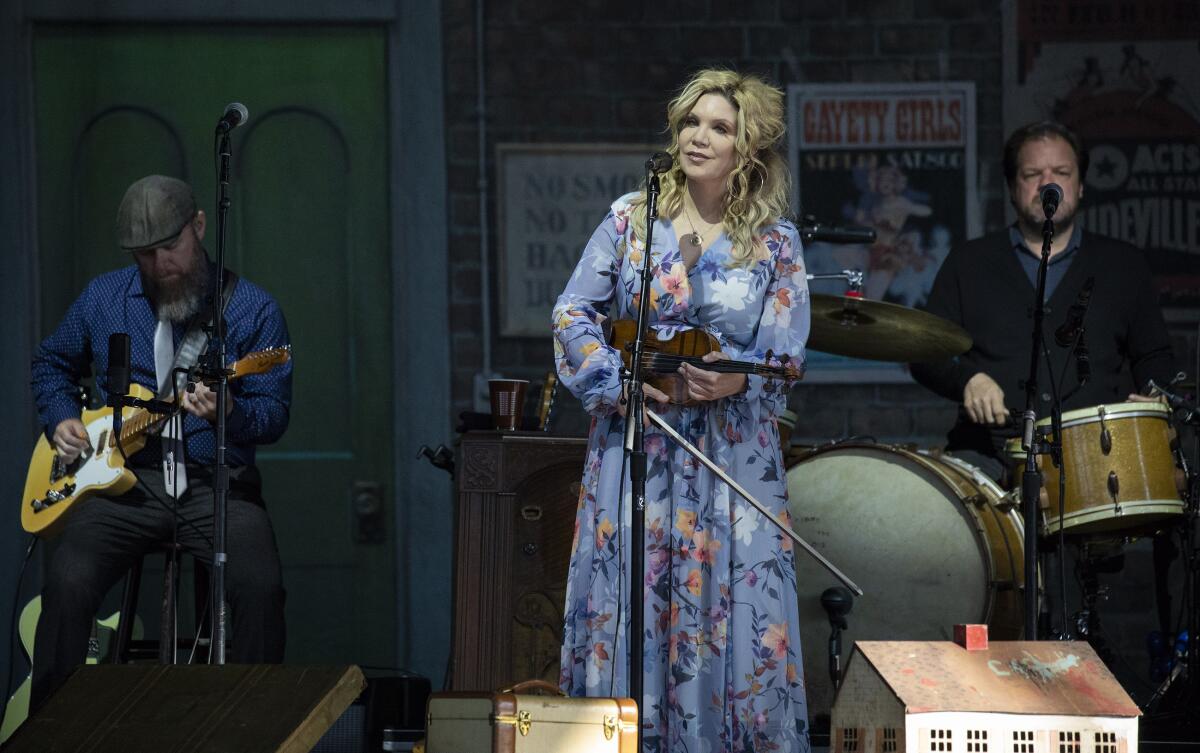
Q: Alison, we also spoke in 2007 and you said: “Every time you make a record, it’s like the first and last one you’ll ever make. That’s what it feels like to me. You get so wrapped up in that, at least I do, and you don’t focus on anything but that. Then you put that away and move on to the next thing.” It seemed as if “Raising Sand” might have been the first and last record you and Robert made together. What, specifically, brought the two of you back together to make “Raising the Roof” and were there any false starts between “Raising Sand” and now?
Krauss: Um, for me — and I think I can speak for Robert — we kept hearing songs where we thought: “Oh, that would be nice for the two of us to sing,” songs that were inspiring us to want to get back in the studio together. That went on for years. Finally, we had enough tunes together, that all felt right, that it was time to go back in. As far as false starts, we had lots of conversations, I probably couldn’t count how many, until we had the right material.
Plant: Yeah, that’s true for me as well. I was really missing the idea of truly singing with somebody. I had a sojourn after “Raising Sand,” then I went back to my British and West African music chums. But I was never singing with anybody else. It’s very evocative to sing alongside somebody like Alison, who has the capacity to suddenly let go. We look at each other at times onstage and she’s like: “Go on. Why don’t you take it up?”
And I’m thinking: “I don’t know if I can. Will you come with me?” It’s like climbing two different sets of stairs together... To me, it’s intriguing and I’m constantly surprised. When I think of the way we sing “Quattro” (the soft, intensely melancholic opening song on “Raise the Roof”), it’s just great.
Krauss: (laughs appreciatively)
Plant: It’s something I never have experience much, if ever.
Q: I ask this tongue-in-cheek, Robert, but was part of your motivation for reuniting to keep Alison from becoming more involved with Def Leppard?
Plant: (laughs) Well, I mean, she has my blessing! These kids from the ‘80s have a certain way about them, (but) I can’t see Alison going on the road with them. (Def Leppard singer) Joe Elliott is a really good friend of mine, and he’s a good singer and a great guy. But if Alison had to go on the road with them and other ‘80s bands, I think she’d wish she hadn’t been driven to distraction!
Krauss: I like the way Robert says things. He’ll say something and he’s making some kind of innuendo!
Plant: Oh, yeah. I can imagine the other ‘80s bands clustering around you and how Def Leppard would drive you around the bend, and you would come knocking on my door, begging for mercy!
Q: Robert, in 2019, you began working with Suzy Dian in your new band, Saving Grace. Did Alison open a door for you, in terms of feeling more comfortable singing with a woman?
Plant: Yes. Well, so I also did some stuff with (Plant’s ex-paramour) Patty Griffin (in 2013), which is a totally different thing... As a duettist, I get to go to places Alison has gone (musically), with a certain knowledge that: “I know my gig and this is a different gig.” It’s intriguing for me. I was going to say “challenging,” but we’ve gone past that now. We’ve gone to the realms of Alison looking at me (on stage) and wondering whether I’ll ever sing the right parts of songs!
Krauss: (laughs) That is so dramatic!
Plant: You can tell we’re great together, energy-wise, respect-wise and humor-wise.
Q: Alison, back in 1999 Bob Dylan and Paul Simon did a tour together with their respective bands. Each night, when Bob and Paul would do a song together, Paul would face Bob rather than the audience so that he would be less likely to get lost trying to harmonize with Bob. Robert may not take the kind of liberties that Bob does, but he keeps you on your toes. When you are on stage together, are you watching him intently or are you purely reacting to the audible twists and turns he might make?
Krauss: Oh, I’m watching him. He’s sneaky!
Plant: (laughing) That may be the case!
Q: Robert, does Alison’s precision and consistency as a singer serve as a musical anchor that makes it easier for you to make those twists and turns?
Plant: No, not really. I just think whatever it is that’s going on is almost unspoken. And we can’t be that unpredictable or it would sound like a mess, and it doesn’t. There’s no point in going off (track) when you’re singing harmonies because it could be worse than it already is! I can understand Paul Simon struggling with Bob Dylan because I think that Bob enjoys himself within his own songs. And, normally, he’s singing alone by himself, apart from that thing he did with Johnny Cash (in 1969).
Q: You’ve done two albums and two tours together, almost 14 years apart. What comes next?
The temperature was a toasty 80 degrees when Willie Nelson concluded his Friday night performance at Humphreys Concerts by the Bay.
Plant: Well, waiting another 14 years would make me 88! I can’t do that, although Willie Nelson is going to be 90 next year and he’s still got it. I don’t know. I’d like to think we can turn a corner and find some crazy stuff. And I’m sure we can do that and we just talked about it, (although) we said that in 2008. But I’m very optimistic we can hold each other’s attention a little longer!
Krauss: (laughs) I’d like to continue. We’ve had a really wonderful time and I’m really proud of what we’ve done.
Robert Plant & Alison Krauss, with JD McPherson
When: 7 p.m. Monday
Where: The Rady Shell at Jacobs Park, 222 Marina Park Way, downtown
Tickets: $54-$77, plus service fees
Online: ticketmaster.com
Updates
3:45 p.m. Aug. 13, 2022: The original version of this interview with Robert Plant and Alison Krauss referred to singer-songwriter Patty Griffin as the ex-wife of Robert Plant. According to Griffin’s longtime press representative, who also represented Plant from 2009 until last year, Plant and Griffin were a couple and lived together, but never wed before they parted ways. In a 2012 interview with the London-based newspaper, The Independent, Plant referred to his relationship with Griffin at the time by saying: “I eloped and ran off to Texas. So now I spend half my time there and half here.” Asked Saturday to clarify, Griffin’s press representative — who also represented Plant at the time — told the Union-Tribune: “Yes he was saying ‘eloped.’ He was playing with the language. He did go and live with her but they never married.”
Get U-T Arts & Culture on Thursdays
A San Diego insider’s look at what talented artists are bringing to the stage, screen, galleries and more.
You may occasionally receive promotional content from the San Diego Union-Tribune.


